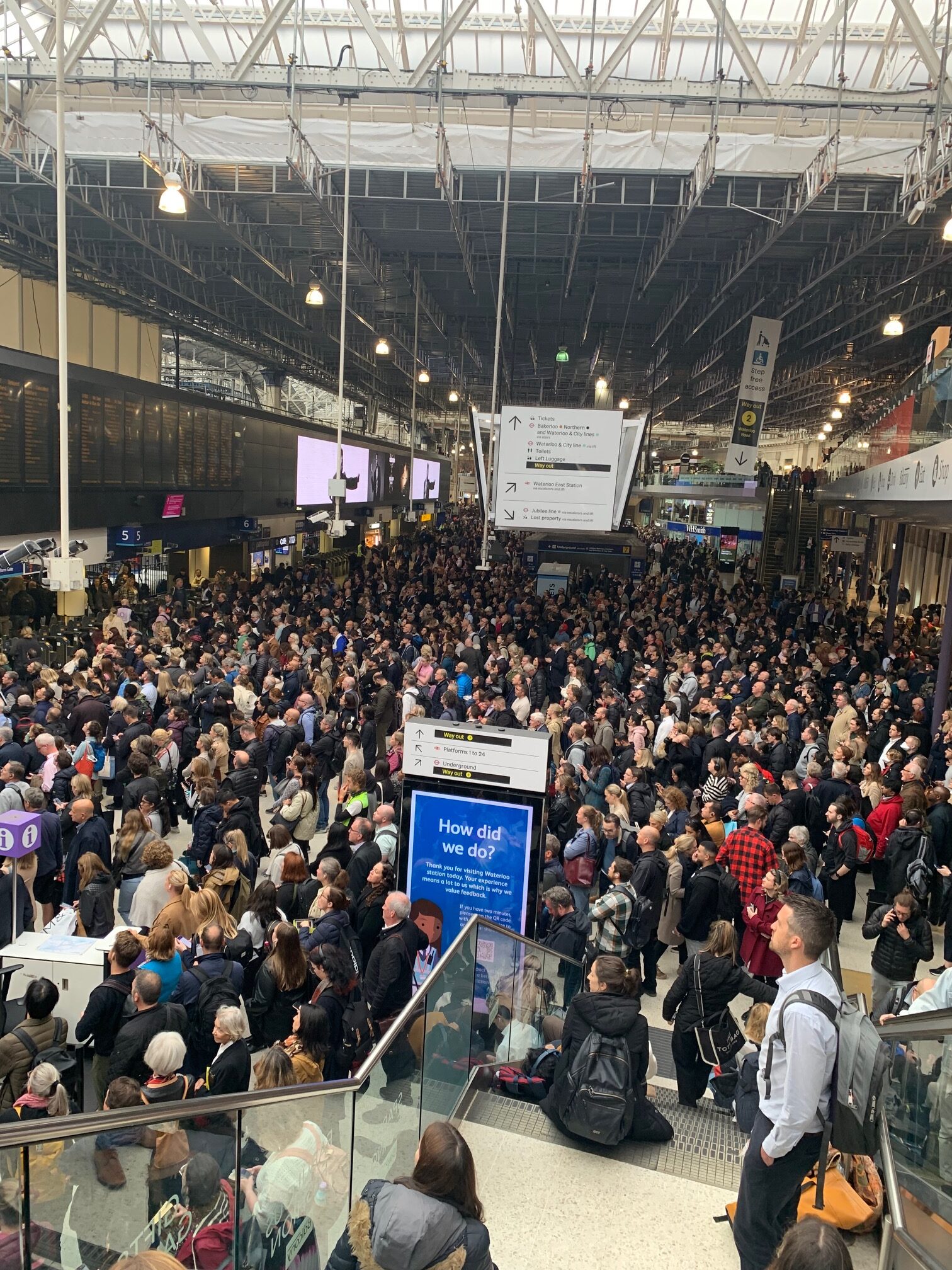To be a King’s commuter, one must be prepared to weigh its many advantages alongside its numerous disadvantages and less appealing aspects. Commuting is not for the weak; it’s for the resilient, the overcaffeinated and the people who can sprint for a train while holding a coffee and a tote bag without losing either (major respect).
If you weren’t an overthinker and meticulous planner before, commuting will absolutely turn you into one. You’ll develop military level time management skills, memorise train timetables like they’re song lyrics, and will still end up running late due to “signal failures”. It requires serious willpower and strength, and some days are definitely better than others.
So, here is everything you’ll only understand if you’re a commuter student at King’s – and if you’re not a commuter, send your thoughts and prayers their way. They need it.
Delays and cancellations

Survival of the fittest at Waterloo Station
For many who are familiar with TFL, it is no surprise that the frequent delays, diversions and strikes constitute one of the greatest preoccupations of a King’s commuter student in their everyday life. The constant checking of bus and train times is enough to send panic signals straight through your nervous system.
It is worth mentioning how disappointing the amount of screen time that ends up being dedicated to such apps on our phones is, which is a true testament to the life of a commuter. Although delays and cancellations are out of our reach, they can definitely become an inconvenience. They make you start counting down the minutes you have left until your early-morning lecture, and imagining the way you will have to walk into that lecture theatre quietly in order to attract the least attention to yourself as humanly possible.
Early starts

On the flip side, giving yourself too much time in advance can come with its cons too. Arriving on campus a whole half an hour early will make you question your life choices and have you repeating “I could have slept a little longer”, much to the annoyance of your non-commuter friends. Regardless, being a commuter student means that these sacrifices have to (unfortunately) be made.
Early starts are part of the metaphorical contract we did not know we had signed. If your first class starts at 9am, you may well have to get out of bed at the crack of dawn. This is the price that has to be paid, but at least it is nowhere near the not-so-student-friendly cost of student accommodation in London right now. The struggle of having to make it in for an early start, especially if it is the only class of the day, is a test of how committed a student is; they are so skippable, but this temptation must be resisted.
Forgetting essentials

Nothing is worse than forgetting something important for the commute that awaits you.
Commuting is definitely challenging, but there are some little things that can help make the length of the journey more enjoyable. One being listening to your favourite music, audio book, or podcast. For this, headphones are essential, and also highly recommended, so other passengers can equally enjoy their commute. Tuning into something is rather therapeutic. It can block out background noise, help you concentrate on your thoughts, and more generally, just make you feel good and ready for the day ahead.
However, realising that your headphones have not been charged, or, even worse, they have been left at home, leaves you with quite the opposite feeling. That is the feeling of utmost despair and emptiness. How can one survive such an arduous journey without a little something to keep them going? To add to this inconvenience, it would take unnecessary time out of the commute to turn back and go home, when you could already be on the move. The strength that comes with being a commuter includes the ability to face such nuisances with resilience, and this is especially required on those more gloomy days.
Leaving plans earlier

Not only does a commuter have to worry about how much time they have to get to their destination, but they must also remember that they will have to make the treacherous journey back home and in good time, of course. This (again) means the dreaded checking of transport times – even if you are having the absolute time of your life with your friends or attending a social event.
It is pretending not to be phased that you have missed the bus or train, and having to accept that the next one will now only come in thirty minutes because it is that late at night. Even worse is already knowing when the last train is and having to calculate how much fun is left for you to have before you will eventually need to leave and call it a day. Although this can cut plans short, at least one can return home safe and sound, and of course, at a reasonable time.
